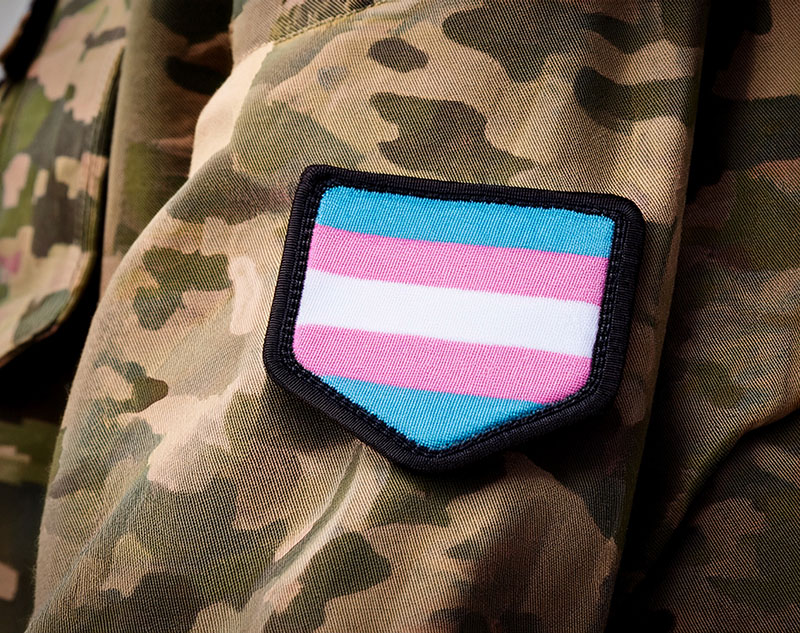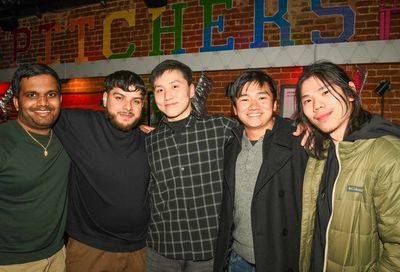Dutch Court Rejects U.S. Trans Woman’s Asylum Bid
Dutch authorities say Veronica Clifford-Carlos failed to prove she faces a "legitimate risk of persecution" or threat of physical harm in the United States.

A Dutch court has upheld a ruling rejecting a U.S. transgender woman’s bid for asylum, finding she does not face a substantial enough threat of persecution in her home country.
Veronica Clifford-Carlos, a 28-year-old visual artist from California, said she once believed she’d build a life in the United States, but felt compelled to flee after receiving death threats over her gender identity.
Clifford-Carlos left the United States — leaving behind friends and her dog — and flew to the Netherlands with her father. Upon arrival, she applied for asylum, telling authorities about the abuse she endured in the United States, particularly after President Donald Trump’s re-election last fall.
“I have people screaming f****t at me in the street,” she previously told Reuters. “I have people threatening my life, threatening to assault me, threatening to follow me home and kill my family.”
Since returning to office, Trump has issued several executive orders limiting transgender rights, seeking to roll back trans-inclusive nondiscrimination policies and anti-bias training, and refusing to recognize transgender identity as valid.
Clifford-Carlos argued that those policies are worsening life for trans people in the United States, and said the thought of returning gives her “more dread than I have ever experienced in my entire life.”
Earlier this year, the Netherlands — long seen as protective of LGBTQ rights — updated its U.S. travel advisory, warning LGBTQ travelers about recent American laws and State Department policies that could lead to detention or even a permanent ban for something as simple as a passport gender marker that doesn’t match their assigned sex at birth. Even so, the United States is still classified as a “safe” country for transgender people, and Clifford-Carlos’s asylum request was denied.
With support from the Dutch advocacy group LGBT Asylum Support — which is assisting 20 other transgender asylum-seekers in the Netherlands — Clifford-Carlos appealed the decision, arguing that the recent anti-trans shift had made it unsafe for her to remain in the United States, NBC News reported.
According to data from the Netherlands’ Immigration and Naturalisation Service (IND), 29 Americans applied for asylum in the first half of 2025. In prior years, the annual number ranged from nine to 18.
Sandro Kortekaas, chair of LGBT Asylum Support, has argued that the United States’ “safe” designation relies on information that predates Trump’s second term, and that Dutch authorities should acknowledge the rapid policy shifts since he returned to power. The group has also noted that the IND considers discrimination by authorities or fellow citizens to be “persecution” if it is severe enough to prevent victims from functioning “socially or societally.”
But the court found that Clifford-Carlos does not personally face a credible risk of persecution, and said she failed to show she lacks protection or access to essential services, according to Reuters. The court also sent her case back to immigration authorities for further review due to a procedural error that undermined the rationale for the original denial.
Clifford-Carlos’s legal team called the ruling “very unfortunate,” and told Reuters they plan to submit new evidence to immigration authorities to bolster her asylum claim.
Marlou Schrover, a Dutch economic and social history professor, told The World in September that it’s rare for Dutch courts to grant refugee status based solely on a person’s LGBTQ identity.
She also noted that granting asylum is a political act, and that awarding refugee status is often seen as a sharp rebuke of another country — a criticism Dutch immigration authorities may be reluctant to level at the United States for fear of reprisal.
Schrover added that Dutch immigration authorities generally believe people in the United States can relocate within the country — including to more LGBTQ-friendly states — if they feel unsafe. She also said U.S. anti-transgender policies may not rise to the level of persecution.
“Exclusion from the military or exclusion from sports may be unpleasant and horrible, but it’s not seen as persecution in the eyes of Dutch immigration officials,” she said.
Support Metro Weekly’s Journalism
These are challenging times for news organizations. And yet it’s crucial we stay active and provide vital resources and information to both our local readers and the world. So won’t you please take a moment and consider supporting Metro Weekly with a membership? For as little as $5 a month, you can help ensure Metro Weekly magazine and MetroWeekly.com remain free, viable resources as we provide the best, most diverse, culturally-resonant LGBTQ coverage in both the D.C. region and around the world. Memberships come with exclusive perks and discounts, your own personal digital delivery of each week’s magazine (and an archive), access to our Member's Lounge when it launches this fall, and exclusive members-only items like Metro Weekly Membership Mugs and Tote Bags! Check out all our membership levels here and please join us today!



























You must be logged in to post a comment.